NIKKEI FORUM 28th FUTURE OF ASIA Panel Discussion: “Cultural Exchanges Nurture Asia’s Next Generation”
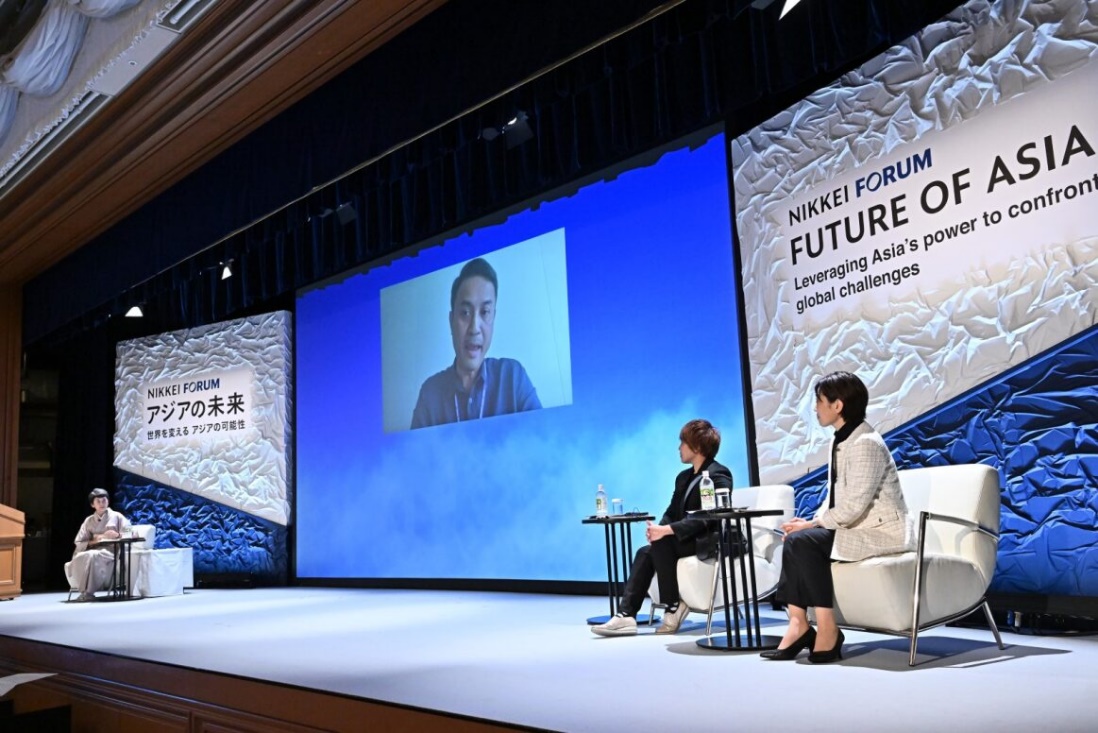
At the Nikkei Forum 28th Future of Asia, a hybrid onsite-online symposium held in May by Nikkei, the Japan Foundation co-hosted the panel discussion titled “Cultural Exchanges Nurture Asia’s Next Generation” to take a broad look at the relationship between business and cultural exchanges in fostering younger generation. The discussion drew on the specific experiences of the panelists who are active at the intersection of intercultural exchanges, art, and business. They exchanged opinions on the importance of keeping the younger generation interested in and concerned about world affairs as well as actively involved in cultural exchanges.
PROFILE
Panelists:
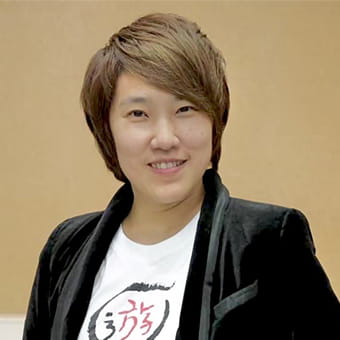
Yupharet Eakturapakal
Founder and CEO, G-Yu Creative
G-Yu Creative Co., Ltd. is a company founded by a team of experienced professionals and experts working with Japan-related contents that provide comprehensive services including the planning and management of Japan-related events. Yupharet founded the Mainichi Academic Group in Thailand in 1997 in response to the increasing number of Thai people learning Japanese and opened a Japanese-language school the following year. In 2005, she held the first "JAPAN FESTA" as a venue for Japan lovers to interact with one another. The event has since developed into the "JAPAN EXPO THAILAND," which comprehensively introduces a wide range of Japanese culture through live performances and exhibition booths and has expanded to become one of Asia's largest events, attracting more than 500,000 visitors over the three-day period. Yupharet established a business model characterized by a "localized" strategy to introduce the appeal of Japanese culture from the Thai perspective and has successfully launched a similar event in Malaysia.
Having a BA from Mahidol University International College (Tourism and Hotel Management) and MSc (International Business and Marketing) from London South Bank University, Yupharet received the Executive of the Year for the CEO Thailand Award 2023, the award given to Thai leaders/executives who are responsive to changes in Thailand and global society.
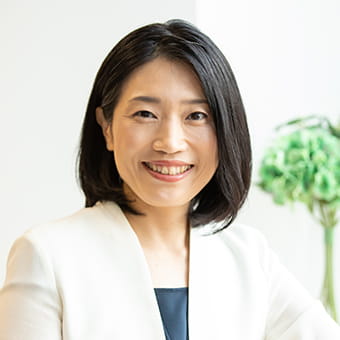
Tomoko Katsurayama
President and CEO, GLOBIS Asia
Tomoko Katsurayama is the President & CEO of GLOBIS Asia Campus Pte. Ltd., the Southeast Asian headquarters of GLOBIS, where she has been stationed since 2014. She is also a member of the Executive Committee at GLOBIS.
In her current role, she is engaged in realizing the GLOBIS vision in the Southeast Asian region, which is to build an ecosystem to create and innovate society.
Prior to joining GLOBIS, Tomoko Katsurayama gained valuable experience working at Nike Japan, Amazon Japan, and a foreign consulting firm. At GLOBIS, she was instrumental in developing research and programs related to strategy and marketing, and she was also involved in launching and operating the G1 Global Conference. The conference brings together leaders from diverse fields including politics, economy, business, science, technology, and culture to discuss future visions and global challenges, and explore potential solutions.
Tomoko Katsurayama earned her Bachelor's degree from Nagoya University, and her MBA and MSA (Master of Sports Administration) from Ohio University.
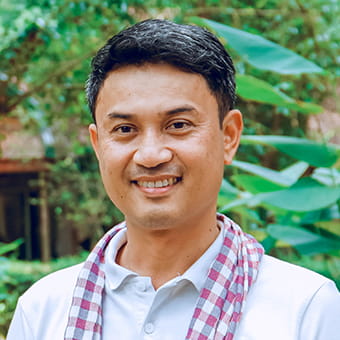
Prim Phloeun
Executive Director, Living Arts International
Prim started his career as one of the co-founders of a vocational training program called ‘Artisans d’Angkor,’ which teaches young artisans in rural areas to develop skills in traditional handicrafts, and creates a marketplace for their work. In 2010, he became Director of Cambodian Living Arts. In the last decade he has led the transformation of Cambodian Living Arts (CLA) into Living Arts International, initiating policy-driven, collaborative, and transnational cultural actions, inspired by the resilience of arts communities in post-conflict contexts. Five years ago, Living Arts International launched a regional organization, Mekong Cultural Hub, the mission of which is to empower diverse cultural practitioners to bring to life their visions for an inclusive, sustainable Asia.
Moderator:
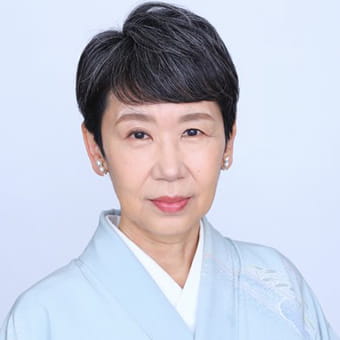
Yuri Sato
Executive Vice President, The Japan Foundation
Yuri Sato serves as Executive Vice President of The Japan Foundation from 2021. She is in charge of promoting global partnership through dialogue and supporting overseas Japanese studies. Prior to this she has been working as a researcher of area studies on Indonesia and Southeast Asia, especially economy, industry, business, and political economic studies at the Institute of Developing Economies (IDE-JETRO) since 1981. She stationed in Indonesia as a researcher in 1985-87 and 1996-99, and as a special advisor for the Indonesian Chamber of Commerce and Industry (KADIN) in 2008-10. In 2015-19 she served as Executive Vice President of IDE, and of JETRO (Japan External Trade Organization) in charge of promoting economic exchange with Southeast Asia and Oceania. Her present notable positions include President of the Japan Association of Asian Studies, Vice President of the Colloquium on Indonesian Studies in Japan, Director of the Japan Indonesia Association Inc., and lecturer at the University of Tokyo. She obtained a doctorate in economics from University of Indonesia, and is the author/editor of numerous academic works, and the recipient of the 24th Grand Prix Asia Pacific Awards and the 16th Okita Memorial Prize for International Development Research on her book.
- What We Do Top
- Arts and Cultural Exchange [Culture]
- Japanese-Language Education Overseas [Language]
- Japanese-Language Education Overseas [Language] Top
- Learn Japanese-language
- Teach Japanese-language
- Take Japanese-Language Test
- Know about Japanese-language education abroad
- The Japanese-Language Institute, Urawa
- The Japanese-Language Institute, Kansai
- Japanese-Language Programs for Foreign Specified Skilled Worker Candidates
- Japanese Language Education for Japanese Children Resident Overseas and for the Descendants of Migrants
- Archives
- Japanese Studies and Global Partnerships [Dialogue]
- JF digital collection
- Other Programs / Programs to Commemorate Exchange Year
- Awards and Prizes
- Publications
